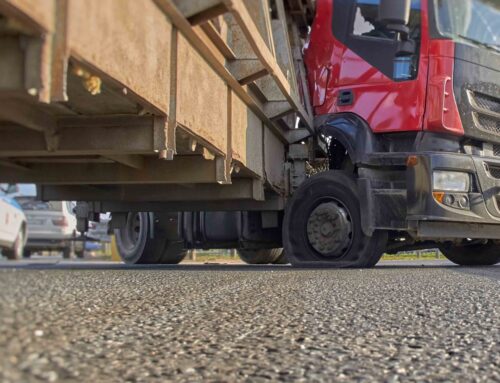Goodyear: RV Tire Recall
Attention all RV owners and renters: it’s time to check your tires.
The NHTSA announced that the company Goodyear is recalling over 170,000 tires intended for trucks and recreational vehicles that were sold between 1996 and 2003. This recall specifically applies to G159 tires in size 275/70R22.5, which are most commonly found on RVs.
Although these tires are no longer in production, they may still be in use, put aside for later use, and it’s still possible for them to be purchased through online marketplaces.
Since there have been reports of these products failing while on the road resulting in at least nine deaths and dozens of injuries, the NHTSA urges drivers to act on the following.
- If you have 22.5 inch rims on your vehicle, check to make sure that your tires are not under recall.
- If you have impacted tires, get a free replacement from Goodyear. You can go here or here to find your nearest retailer, or call 866-353-3847.
- If you have impacted tires that have not yet been fitted to a vehicle, contact Goodyear Consumer Relations at 800-592-3267 to exchange the tires for $500.
What Causes RV Tire Failure?
There are six most likely causes of tire failure on recreational vehicles that can lead to serious accidents.
- External damage such as bubbles, cracks, cuts, punctures, and wheel and valve failures.
- Belt and tread separations, which occur when radial tire belts detach from each other, or from the body. This can also happen when the tread rubber comes apart from the top belt.
- Run low flex failure, which means that the tire sidewall is excessively flexing. This usually happens if a tire is under-inflated.
- The tire has reached the end of its life. Heat, wear and tear, and pressure over time affect the tire’s effectiveness.
- Overloading the vehicle.
Prevention
According to the NHTSA, roughly 76,000 RV accidents happen every year. You can prevent a tire failure related accident by following these precautionary guidelines.
- Check for tire recalls online regularly.
- Generally, RV tires have a lifespan of about 3-5 years. However, this estimate is also dependent on the type of tire, travel frequency and distance, weather, and road conditions. To play it safe, frequent travelers should replace their tires every three years or sooner if need be.
- Always check your tire pressure before taking trips. It is suggested for average 16-inch tires that the pressure be kept between 35 and 80 PSI.
- Have your tires rotated every 5,000-9,000 miles to prevent uneven wear on the treads. This can also prolong the life of your tires.
- Just like cars, it’s a good idea to keep a spare tire on hand for an RV. Most recreational vehicle experts suggest having two on board at all times in case of tire failure.
- Avoid overloading the vehicle. You can check the driver’s manual for the Gross Vehicle Weight Rating (GVWR) for the weight limit.
- Your tires have a weight limit too! Check your tires for the Tire Load Index which can sometimes be found on the tire’s sidewall. You can also check by looking over this chart.
If You Get in an Accident…
If you get into a recreational vehicle collision, follow these steps.
- Check yourself and passengers for injuries. Do not try to move someone who is badly injured! Be sure to take pictures as well, which will help you pursue compensation for your personal injuries
- Call 911.
- Exchange information with all parties involved, including witnesses.
- Go to the emergency room, even if you think your injuries are minor. There can be underlying injuries that you aren’t aware of, and will need compensation It’s also important because having these medical records will help support your personal injury claim.
- Contact your attorney as soon as possible, and do not speak with insurance adjusters until you’ve spoken to your lawyer.
If you have been injured in an accident, contact us to schedule an initial consultation where you will receive free legal advice from an experienced Columbia attorney near you. We are dedicated to fighting for the compensation you need, and deserve.







